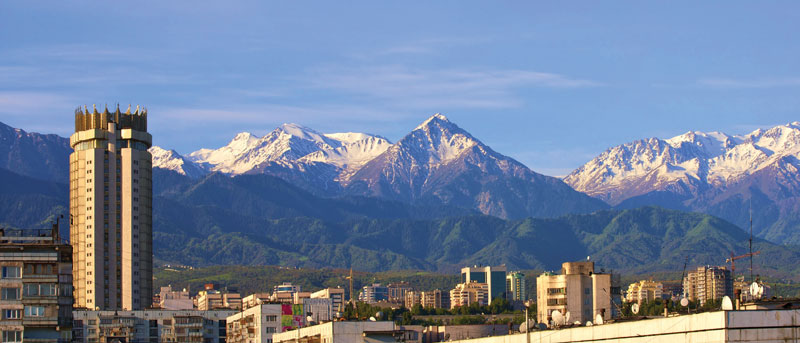My Mandarin Chinese Journey: Kazakhstan
After ten years in Singapore (minus the year I spent in Los Angeles), I left my law firm and enrolled in a mid-career Master of Public Administration program at the Kennedy School of Government at Harvard to study international development. My goal was to use my international law background in one of the international development banks such as the Asian Development Bank or the World Bank. I spent one year at Harvard, and it was a wonderful experience. It was a hectic year, and I wasn’t able to fit a language class into my schedule while I was at Harvard, unfortunately.
Although I did make some connections at the World Bank that would ultimately prove useful, my first job after graduation was as a legal reform consultant on a US AID project in Almaty, Kazakhstan. (Technically, I was working for a Harvard consulting “firm” called the Program on International Financial Systems, a joint venture between Harvard Law School and the Harvard Institute for International Development.) The project itself was one thing—poorly designed, despite the fascinating subject matter—but living in Almaty was another challenge. I dredged up a little of the Russian I had studied in college, mostly just polite expressions, but our work was done through an interpreter. I never did learn any of the Kazakh language.
What was appealing to me about Kazakhstan when I was offered the job was its proximity to China—the two countries share a very long border, over 1100 miles. The relationship between them is complicated, in part because there is a large ethnic Kazakh population inside China as well as a very large Uighur community, a group closely related to the Kazakhs. (The two languages, Uighur and Kazakh, are both Turkic, and apparently mutually intelligible.)
I never looked into the details of the cross-border trade, but there was a fair amount of it, as Chinese goods were readily available in Almaty, and I would occasionally see Chinese men on the streets and understood them to be businessmen. Also, there was a decent Chinese restaurant that I went to now and then, giving me an opportunity to use a little of the language, although not for anything very challenging. Again, just polite expressions and ordering food.
I should mention that there is also a large ethnic Korean population in Kazakhstan owing to Stalin’s internal displacement policies before World War II. Stalin feared that Japan would infiltrate the Soviet Union via the Koreans who lived in Russia’s far Northeast, and, consequently, many were deported to Central Asia. There would be Korean women in the Almaty markets selling kimchi and other Korean food items, and there were a couple of Korean restaurants in Almaty at the time I lived there.
The year I spent in Kazakhstan didn’t help my Chinese abilities, but it did keep my interest in the language alive.
Next, Working in China


